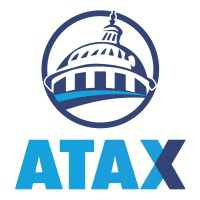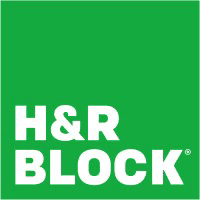Not sure if Retirement Income Source is right for you?
Talk to a Franchise Advisor who can match you with your perfect franchise based on your goals, experience, and investment range.
Talk to an Expert
Retirement Income Source
How much does Retirement Income Source cost?
Initial Investment Range
$100,400 to $225,500
Franchise Fee
$25,000
The franchise is to operate an investment management services business under the trade name "Retirement Income Source."
Enjoy our partial free risk analysis below
Unlock the full risk analysis to access 9 more categories covering 100+ risks.
Retirement Income Source March 13, 2025 FDD Risk Analysis
Free FDD Library AI Analysis Date: July 16, 2025
DISCLAIMER: Not Legal Advice - For Informational Purposes Only. Consult With Qualified Franchise Professionals.
Franchisor Stability Risks
Start HereDisclosure of Franchisor's Financial Instability
High Risk
Explanation
Retirement Income Source, LLC's (RIS) financial statements reveal significant instability. While 2024 shows a small positive net worth, 2023 reported a negative net worth of ($1,768,921). This was resolved on paper by a non-cash transfer from its parent company, not by operational profit. The FDD itself flags the franchisor's financial condition as a special risk, questioning its ability to provide support. This financial weakness could jeopardize the support and services you rely on.
Potential Mitigations
- Your accountant must conduct a deep analysis of the audited financial statements, including the notes explaining the large non-cash transaction in 2024.
- A thorough discussion with your business advisor is needed to assess if the franchisor's revenue model appears sustainable without such parent company interventions.
- Ask your attorney about the protections afforded by any state-mandated financial assurances, like a surety bond, mentioned in the addenda.
High Franchisee Turnover
High Risk
Explanation
The franchise system is shrinking. Item 20 data shows a net decrease in franchised outlets each year from 2022 to 2024, with a total of six terminations and only two new units opened over three years. This trend of more units leaving the system than joining is a significant red flag. It may suggest potential issues with the business model's profitability, franchisee satisfaction, or the level of support provided by RIS, contributing to a high rate of turnover.
Potential Mitigations
- It is critical to contact a significant number of former franchisees listed in Item 20 to understand their reasons for leaving the system.
- Your business advisor should help you analyze the turnover rates and compare them against any available industry benchmarks for financial services franchises.
- Discuss the shrinking system size directly with the franchisor and evaluate the credibility of their explanation with your attorney.
Rapid System Growth
Low Risk
Explanation
This risk was not identified in the FDD package. Rapid system growth can strain a franchisor's ability to provide adequate support. In this case, however, the opposite trend is observed; Item 20 data indicates the system is contracting rather than expanding rapidly. Therefore, the specific risks associated with outpacing support infrastructure are not a primary concern here, though the reasons for the contraction present a different set of risks.
Potential Mitigations
- While rapid growth is not an issue here, asking current franchisees about the quality and consistency of franchisor support remains a crucial due-diligence step.
- Your business advisor can help you analyze the franchisor's strategic plan to understand their goals for future growth or stability.
- A review of the franchisor's financials with your accountant can provide insight into their capacity to support the existing system.
New/Unproven Franchise System
High Risk
Explanation
RIS began franchising in May 2019, making it a relatively new system. This limited history, combined with the shrinking unit count in Item 20 and the financial instability shown in Item 21, presents a heightened risk. An unproven system may lack fully developed support structures, refined operational processes, and strong brand recognition, which can impact your potential for success. The combination of these factors warrants significant caution and due diligence.
Potential Mitigations
- Speaking with the earliest-joining franchisees from the list in Item 20 is essential to understand the system's evolution and the franchisor's performance.
- Your business advisor should help you perform deep due diligence on the management team's specific experience in supporting a franchise system.
- Given the higher risk, your attorney might be able to negotiate more franchisee-favorable terms to compensate.
Possible Fad Business
Low Risk
Explanation
This risk was not identified in the FDD package. A fad business is tied to a fleeting trend, which is risky. The business of providing investment and retirement advisory services is a well-established, long-term industry. While specific strategies or products may evolve, the core need for retirement planning is not considered a fad. Therefore, this specific risk is not applicable to the fundamental business model being offered.
Potential Mitigations
- A business advisor can help you assess the long-term market demand for financial advisory services in your specific geographic area.
- It is still wise to discuss the franchisor's plans for innovation and adaptation to changing market regulations and investment products with their team.
- Evaluating the sustainability of any business model against economic cycles with your financial advisor is always a prudent step.
Inexperienced Management
Low Risk
Explanation
This risk was not identified in the FDD package. The executives detailed in Item 2 appear to have extensive prior experience in the financial services and investment industry. For example, the CEO, David Scranton, has been the owner of a financial group since 1987, and the President, Patrick Farrell, has a long history in executive roles at other investment firms. This suggests the management team possesses relevant industry knowledge, although experience in managing a franchise system specifically should still be investigated.
Potential Mitigations
- Your business advisor can help you conduct further research on the backgrounds of the key management personnel.
- When speaking with current franchisees, specifically inquire about their perception of the management team's competence and support.
- It is beneficial to ask the franchisor how their past industry experience translates to supporting franchisees.
Private Equity Ownership
Low Risk
Explanation
This risk was not identified in the FDD package. Item 1 indicates the franchisor is owned by Sound Income Group, which appears to be the operational parent company founded by the same individual, David Scranton. The FDD does not disclose ownership by a private equity firm. Therefore, the specific risks associated with short-term PE exit strategies and priorities are not directly applicable here. The ownership structure appears to be founder-led.
Potential Mitigations
- Your attorney can help verify the corporate structure and ownership of the franchisor and its parent company.
- Engaging a business advisor to research the history and reputation of the parent company, Sound Income Group, is a sound due diligence step.
- It is always prudent to ask the franchisor about their long-term vision and any plans for future sale of the company.
Non-Disclosure of Parent Company
Low Risk
Explanation
This risk was not identified in the FDD package. Item 1 clearly identifies the parent company, Sound Income Group. Item 21 and the attached financial statements in Exhibit D pertain to the franchisor entity, Retirement Income Source, LLC. While the parent's financials are not provided, there is no indication that the parent guarantees the franchisor's obligations in a way that would legally mandate their inclusion. The franchisor's own financials, which show significant weakness, are provided and audited.
Potential Mitigations
- Your accountant should review the provided franchisor financials and note the dependency on the parent company, as seen in the non-cash transaction.
- It is important to understand the relationship between the franchisor and its affiliates, as your attorney can explain.
- Asking the franchisor for financial statements of the parent company could provide a more complete picture of the overall enterprise's health.
Predecessor History Issues
Low Risk
Explanation
This risk was not identified in the FDD package. Item 1 states clearly, "We do not have any predecessors." This indicates that RIS did not acquire the business from a prior entity and is the original franchisor of this system. Therefore, there are no concerns about hidden negative history, litigation, or high franchisee turnover associated with a predecessor entity that are being obscured.
Potential Mitigations
- Your attorney can verify the corporate history of Retirement Income Source, LLC to confirm the accuracy of the 'no predecessors' statement.
- A business advisor can assist in researching the operating history of the franchisor's affiliates, which have been in business longer.
- Even without predecessors, it is critical to perform thorough due diligence on the franchisor's own history as disclosed in Items 3, 4, and 20.
Pattern of Litigation
Low Risk
Explanation
This risk was not identified in the FDD package. Item 3 of the FDD states, "No litigation is required to be disclosed in this Item." This indicates that in the last fiscal year, there has been no material litigation involving the franchisor, its predecessors, or key personnel that alleges franchise law violations, fraud, or other similar claims. The absence of such disclosed litigation is a positive factor, suggesting a lack of systemic legal disputes with franchisees.
Potential Mitigations
- Your attorney can conduct independent public records searches to verify the absence of significant litigation.
- It is always a good practice to ask current and former franchisees about any disputes they may have had, even if not formal litigation.
- Engage legal counsel to review the entire FDD for any other potential areas of dispute not captured in Item 3.
Disclosure & Representation Risks
Example Risk: Franchisee Financial Obligations
Blue Risk
Explanation
This risk involves the financial obligations that a franchisee must meet, including initial fees, ongoing royalties, and other required payments. Understanding these obligations is crucial for long-term success.
Potential Mitigations
- Carefully review the Franchise Disclosure Document (FDD) and consult with a franchise attorney to fully understand all financial commitments before signing.
- Conduct regular risk assessments
- Implement monitoring and reporting systems
Unlock Full Risk Analysis
Purchase the complete risk review to see all 102 risks across all 10 categories.
Financial & Fee Risks
Example Risk: Franchisee Financial Obligations
Blue Risk
Explanation
This risk involves the financial obligations that a franchisee must meet, including initial fees, ongoing royalties, and other required payments. Understanding these obligations is crucial for long-term success.
Potential Mitigations
- Carefully review the Franchise Disclosure Document (FDD) and consult with a franchise attorney to fully understand all financial commitments before signing.
- Conduct regular risk assessments
- Implement monitoring and reporting systems
Unlock Full Risk Analysis
Purchase the complete risk review to see all 102 risks across all 10 categories.
Legal & Contract Risks
Example Risk: Franchisee Financial Obligations
Blue Risk
Explanation
This risk involves the financial obligations that a franchisee must meet, including initial fees, ongoing royalties, and other required payments. Understanding these obligations is crucial for long-term success.
Potential Mitigations
- Carefully review the Franchise Disclosure Document (FDD) and consult with a franchise attorney to fully understand all financial commitments before signing.
- Conduct regular risk assessments
- Implement monitoring and reporting systems
Unlock Full Risk Analysis
Purchase the complete risk review to see all 102 risks across all 10 categories.
Territory & Competition Risks
Example Risk: Franchisee Financial Obligations
Blue Risk
Explanation
This risk involves the financial obligations that a franchisee must meet, including initial fees, ongoing royalties, and other required payments. Understanding these obligations is crucial for long-term success.
Potential Mitigations
- Carefully review the Franchise Disclosure Document (FDD) and consult with a franchise attorney to fully understand all financial commitments before signing.
- Conduct regular risk assessments
- Implement monitoring and reporting systems
Unlock Full Risk Analysis
Purchase the complete risk review to see all 102 risks across all 10 categories.
Regulatory & Compliance Risks
Example Risk: Franchisee Financial Obligations
Blue Risk
Explanation
This risk involves the financial obligations that a franchisee must meet, including initial fees, ongoing royalties, and other required payments. Understanding these obligations is crucial for long-term success.
Potential Mitigations
- Carefully review the Franchise Disclosure Document (FDD) and consult with a franchise attorney to fully understand all financial commitments before signing.
- Conduct regular risk assessments
- Implement monitoring and reporting systems
Unlock Full Risk Analysis
Purchase the complete risk review to see all 102 risks across all 10 categories.
Franchisor Support Risks
Example Risk: Franchisee Financial Obligations
Blue Risk
Explanation
This risk involves the financial obligations that a franchisee must meet, including initial fees, ongoing royalties, and other required payments. Understanding these obligations is crucial for long-term success.
Potential Mitigations
- Carefully review the Franchise Disclosure Document (FDD) and consult with a franchise attorney to fully understand all financial commitments before signing.
- Conduct regular risk assessments
- Implement monitoring and reporting systems
Unlock Full Risk Analysis
Purchase the complete risk review to see all 102 risks across all 10 categories.
Operational Control Risks
Example Risk: Franchisee Financial Obligations
Blue Risk
Explanation
This risk involves the financial obligations that a franchisee must meet, including initial fees, ongoing royalties, and other required payments. Understanding these obligations is crucial for long-term success.
Potential Mitigations
- Carefully review the Franchise Disclosure Document (FDD) and consult with a franchise attorney to fully understand all financial commitments before signing.
- Conduct regular risk assessments
- Implement monitoring and reporting systems
Unlock Full Risk Analysis
Purchase the complete risk review to see all 102 risks across all 10 categories.
Term & Exit Risks
Example Risk: Franchisee Financial Obligations
Blue Risk
Explanation
This risk involves the financial obligations that a franchisee must meet, including initial fees, ongoing royalties, and other required payments. Understanding these obligations is crucial for long-term success.
Potential Mitigations
- Carefully review the Franchise Disclosure Document (FDD) and consult with a franchise attorney to fully understand all financial commitments before signing.
- Conduct regular risk assessments
- Implement monitoring and reporting systems
Unlock Full Risk Analysis
Purchase the complete risk review to see all 102 risks across all 10 categories.
Miscellaneous Risks
Example Risk: Franchisee Financial Obligations
Blue Risk
Explanation
This risk involves the financial obligations that a franchisee must meet, including initial fees, ongoing royalties, and other required payments. Understanding these obligations is crucial for long-term success.
Potential Mitigations
- Carefully review the Franchise Disclosure Document (FDD) and consult with a franchise attorney to fully understand all financial commitments before signing.
- Conduct regular risk assessments
- Implement monitoring and reporting systems
Unlock Full Risk Analysis
Purchase the complete risk review to see all 102 risks across all 10 categories.






